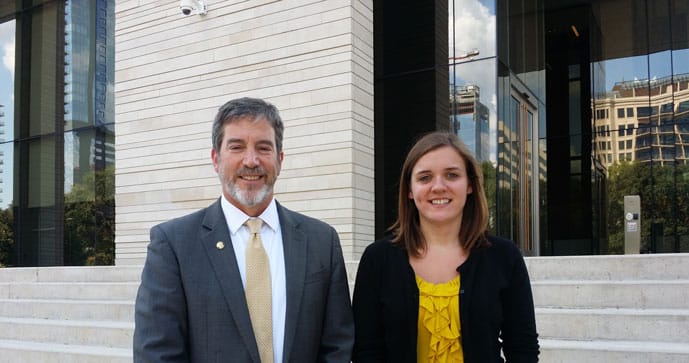On August 13, Whole Woman’s Health and the State’s lawyers gave their closing arguments in the trial of Whole Woman’s Health v. Lakey. Several Texas abortion providers, represented by the New York-based Center for Reproductive Rights, are challenging provisions of HB 2 that require abortion facilities to meet the safety standards of ambulatory surgical centers, or ASCs. Of the ~24 currently licensed abortion facilities, only seven meet this level of safety requirements, although more are expected to open.
The lawsuit also challenges other safety requirements — that abortion doctors have nearby hospital admitting privileges and that abortion-inducing drugs be administered according to the FDA protocol in the presence of the abortion doctor — as applied to Whole Women’s Health’s abortion facility of McAllen and Reproductive Services in El Paso.
The plaintiffs’ attorney, Stephanie Toti, argued that they had proven that the ASC requirement was not medically justified and that it would impose an “undue burden” for enough women that the law is unconstitutional. She argued that the purpose of the law was solely to effectively prohibit abortion in vast areas of Texas, something the State cannot outright legislate.
The State’s attorney, Solicitor General Jonathan Mitchell, gave the closing argument for the State in defense of HB 2. Mr. Mitchell pointed out that the abortion providers had already conceded that there is a “rational basis” for the ASC requirement. They further had the burden of proving that the law was a substantial obstacle for a large fraction of Texas women. But as the State’s population expert had indisputably pointed out, 83 percent of Texas women will continue to live within 150 miles of an abortion facility — a distance that the Fifth Circuit Court of Appeals has already ruled is not an undue burden. Further, about 8 percent of those women living outside a 150 mile distance of an abortion facility are not outside of that distance because of any HB 2 requirement. For example, Planned Parenthood closed its abortion facility in Lubbock well before HB 2 went into effect.
Judge Yeakel is now considering the case and is expected to rule before September 1, when the ASC requirement is set to go into effect.
By: Erin Blauvelt
Staff Attorney
